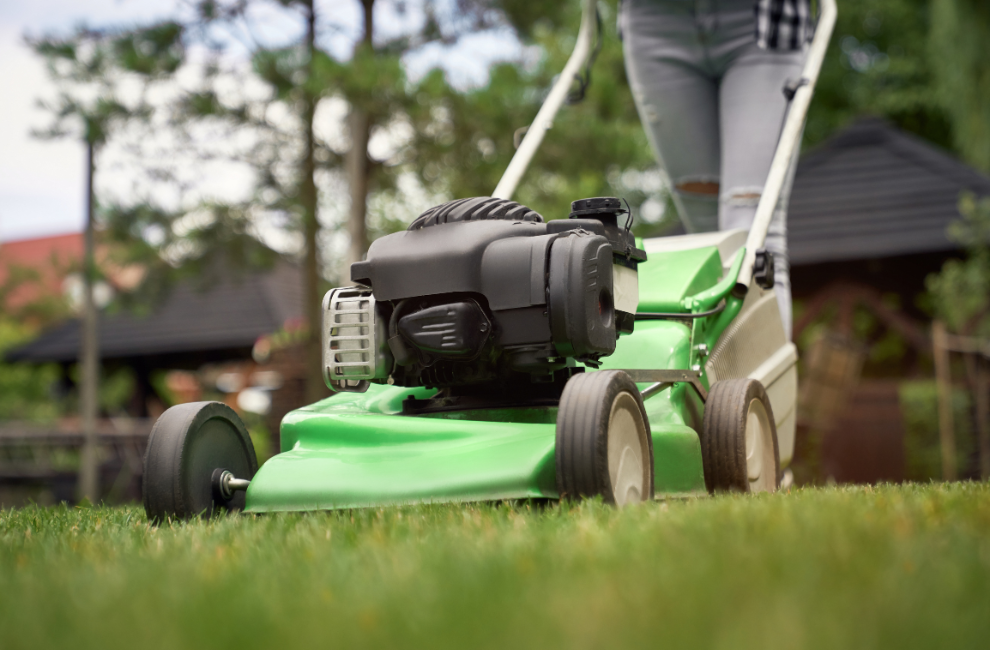The COVID-19 pandemic and subsequent lockdowns saw the desire for rental properties with gardens soar. And with global warming making our summers longer and warmer, the want for a garden isn’t going anywhere.
Renting a property with a garden can offer the perfect blend of urban living and a touch of nature. However, it comes with a responsibility: garden maintenance. Whether you’re a tenant looking to enhance your green space or a landlord seeking to keep your property’s curb appeal, this article will equip you with the knowledge to transform your rental property’s garden into a beautiful, well-maintained space that everyone can enjoy. Let’s dive in and discover the secrets to a flourishing rental property garden.
Who is responsible for garden maintenance in rental properties?
Responsibility for garden maintenance in rental properties can vary depending on the terms outlined in the lease agreement and local regulations. In some rental agreements, landlords may include garden maintenance as their responsibility. This could involve tasks such as trimming hedges and caring for trees and shrubs. Landlords may hire professional gardeners or landscaping services to handle these tasks.
In other cases, tenants may be responsible for garden maintenance. This typically means tenants must mow the lawn, weed flower beds, water the garden, and perform routine upkeep. The lease agreement should clearly outline these responsibilities.
Most of the time, landlords and tenants share the responsibility of garden maintenance. In these agreements, more regular upkeep tasks, such as cutting the grass and watering the plants, will be a tenant job, whereas more major landscaping tasks, such as cutting down trees and repairing fences, will fall to the landlord.
In some rental agreements, there may be no specific mention of garden maintenance responsibilities. In such cases, it’s essential for both landlords and tenants to communicate and come to a mutual understanding of who will handle garden care.
It’s crucial to carefully read and understand the terms of your lease agreement to determine who is responsible for garden maintenance in your specific rental property. If the lease is unclear or if you have concerns about garden maintenance, consider discussing it with your landlord or property management company to clarify responsibilities and avoid any misunderstandings.
How can landlords prevent garden maintenance disputes with tenants?
Preventing garden disputes in rental properties requires clear communication, well-defined responsibilities, and a proactive approach by both landlords and tenants.
Ensure that responsibilities are clearly defined before continuing with the rental agreement. Lease agreements should explicitly outline who is responsible for what tasks within garden maintenance. Before the lease begins, document the garden’s condition through photographs and a written checklist. This can help prevent disputes over pre-existing issues.Repeat this process when the lease ends to assess any changes or damages to the garden.
There should be regular communication between landlords and tenants regarding landscaping and grounds maintenance. During a routine inspection, if a landlord notices that a garden hasn’t been cared for, they should regularly check in to discuss these concerns. Similarly, if a tenant has any issues related to the garden, they should be able to let the landlord know easily. Tenants should promptly notify landlords of any garden maintenance problems, such as pest infestations or damaged fences.
How to keep on top of garden maintenance
Regular Maintenance for Garden Health
Maintaining a garden is a labour of love that pays off with an outdoor space to be proud of. Regular maintenance is the cornerstone of a healthy garden. Start with weeding – removing unwanted plants helps prevent competition for nutrients and sunlight. Make sure you cut your grass regularly to keep on top of it and stop it looking untidy. Regularly water your garden, adjusting the frequency based on weather conditions and the needs of your plants. Deadheading flowers not only keeps your garden looking tidy but also encourages new growth and more blooms. These routine tasks, performed consistently, are fundamental to a flourishing garden.
Seasonal Garden Care
Different seasons bring varying demands for garden maintenance. In spring, focus on soil preparation and planting. Clear debris, cultivate the soil, and add compost to enrich it. Summer calls for more frequent watering, especially during heatwaves. Be on the lookout for pests and diseases and address them promptly to prevent damage. Autumn is an ideal time for cleaning up your garden. Remove dead plants, fallen leaves, and any garden debris that could harbour pests or diseases over winter. Also, consider planting bulbs for spring flowers. In winter, protect your garden from harsh conditions by covering vulnerable plants.
Fertilisation and Soil Health
Healthy soil is the foundation of a thriving garden. Conduct a soil test to determine its pH and nutrient levels. Based on the results, amend your soil with organic matter or specific fertilisers to meet your plants’ needs. Proper fertilisation promotes strong growth and robust blooms. Additionally, consider using natural and organic fertilisers, which enhance soil health over time. Regularly monitor the soil moisture to ensure it’s neither too dry nor waterlogged. Healthy soil provides the nutrients and structure plants require for optimal growth.
Pest and Disease Management
Inspect your plants regularly for signs of trouble, such as discoloured leaves, wilting, or holes, which could signify pests. Identify the specific problem and take appropriate action, whether it’s using organic pest control methods, pruning affected branches, or removing infected plants. Encourage beneficial insects like ladybugs that can help control garden pests naturally. Practising good garden hygiene, such as cleaning tools and removing debris, also reduces the risk of disease.
How Aspire to Move can help
Looking for a rental property with a garden? Or want to find some responsible tenants who you feel comfortable handing over your well-kept property and garden to? Aspire to Move is here to help.
We offer a range of different properties to rent in Bath and Bristol, and we often list whether or not they have a garden. As well as this, we help landlords find suitable tenants for their properties on a daily basis.
Get in contact with us today to discover how we can help you find your dream home!



















